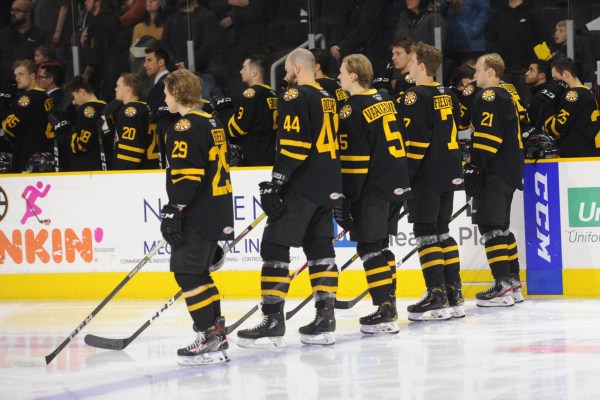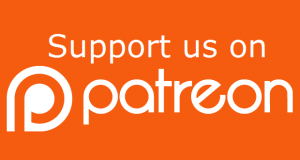
By: Kyle O’Rourke | Follow Me On Twitter @k_orourke15
They have been referred to as the “Baby B’s” for as long as any of us can remember. They have also served as an important developmental stop for many Bruins’ prospects, like Brad Marchand, Patrice Bergeron, Tuukka Rask, and David Pastrnak, on the road to the NHL. While the Providence Bruins may be an afterthought for most Boston Bruins fans, it is important to remember that not every National Hockey League team, and fanbase, has the same fortune.
For years, the American Hockey League (AHL) has been a critical developmental league for some of today’s top NHL talent. Teams are able to store draft picks in the minors in order to help them grow into NHL-level players. This past offseason, the AHL went through some major affiliation changes. It all started with a chain-reaction that can be traced back to the Vegas Golden Knights announcing their newest minor league team, the Henderson Silver Knights.
This news was huge for the Golden Knights, as their AHL affiliate was now geographically much closer to the big club. In order for this to happen, however, VGK had to switch their affiliation from the Chicago Wolves to the San Antonio Rampage, who was previously tied to the St. Louis Blues. Vegas then relocated the Rampage from Texas to Nevada. Subsequently, this left both the Blues without an AHL affiliate and Chicago without an NHL affiliate. Easy swap, right? Not so fast.
Chicago then decided to partner with the Carolina Hurricanes, who abandoned their defending-Calder Cup-champion team in the Charlotte Checkers. Instead of pairing up with Charlotte, St. Louis chose to link up with former Florida Panthers’ affiliate, the Springfield Thunderbirds. At the end of all of the chaos, Charlotte and Florida were left on their own and ultimately made a deal to make the Checkers the AHL affiliate of the Panthers.
American Hockey League announces 2020-21 start date moved back to Feb. 5. Details: https://t.co/sIc2CLG4tI pic.twitter.com/wAt9JUU5Pt
— Providence Bruins (@AHLBruins) October 28, 2020
Why is this important for the Bruins and their fans? Well, whether they realize it or not, having your AHL affiliate so close geographically is a huge advantage. If a Boston player goes down with an injury or illness within a day of a home game and leaves the team strapped for bodies, bringing a player up from Providence is less than a one hour drive away. Compare that to the Vancouver Canucks, whose AHL affiliate plays in Utica, New York. If you’re the Bruins, you have to be feeling pretty fortunate.
Additionally, having your NHL-AHL affiliation remain steady provides organizational stability that often gets overlooked. Nine times out of ten, if you are a fan of the Boston Bruins, you are likely also a fan of the Providence Bruins. Why? Well, the teams have been affiliated for over 20 years. There is a strong contingency of Bruins fans that have never seen Boston have another AHL team. It’s all they know, and that means something. If your NHL team consistently switches affiliations, chances are you’re not going to be as invested in the minor league team, and vice versa.
One final preview of #AskCoach with Head Coach Jay Leach, featuring a few halloween-themed questions from our Ticket Members! As a member you get exclusive access to year-round content, including Q&A sessions with the team, customized digital artwork & more! pic.twitter.com/1SaIlKzbN4
— Providence Bruins (@AHLBruins) October 31, 2020
Are St. Louis Blues fans going to become diehard Springfield Thunderbirds fans? Likely not for a while. They are now forced to choose between rooting for a brand new crop of players they know nothing about or the farm team of a big Western Conference rival in Vegas. If you are a Bruins fan, you don’t have that worry.
So, the next time you decide to visit the Baby B’s (when fans are allowed), be sure to take a moment to appreciate how lucky Bruins fans have it. Imagine if they played way out west and you didn’t get to see things like this in person:
No, thank you.


Leave a Reply